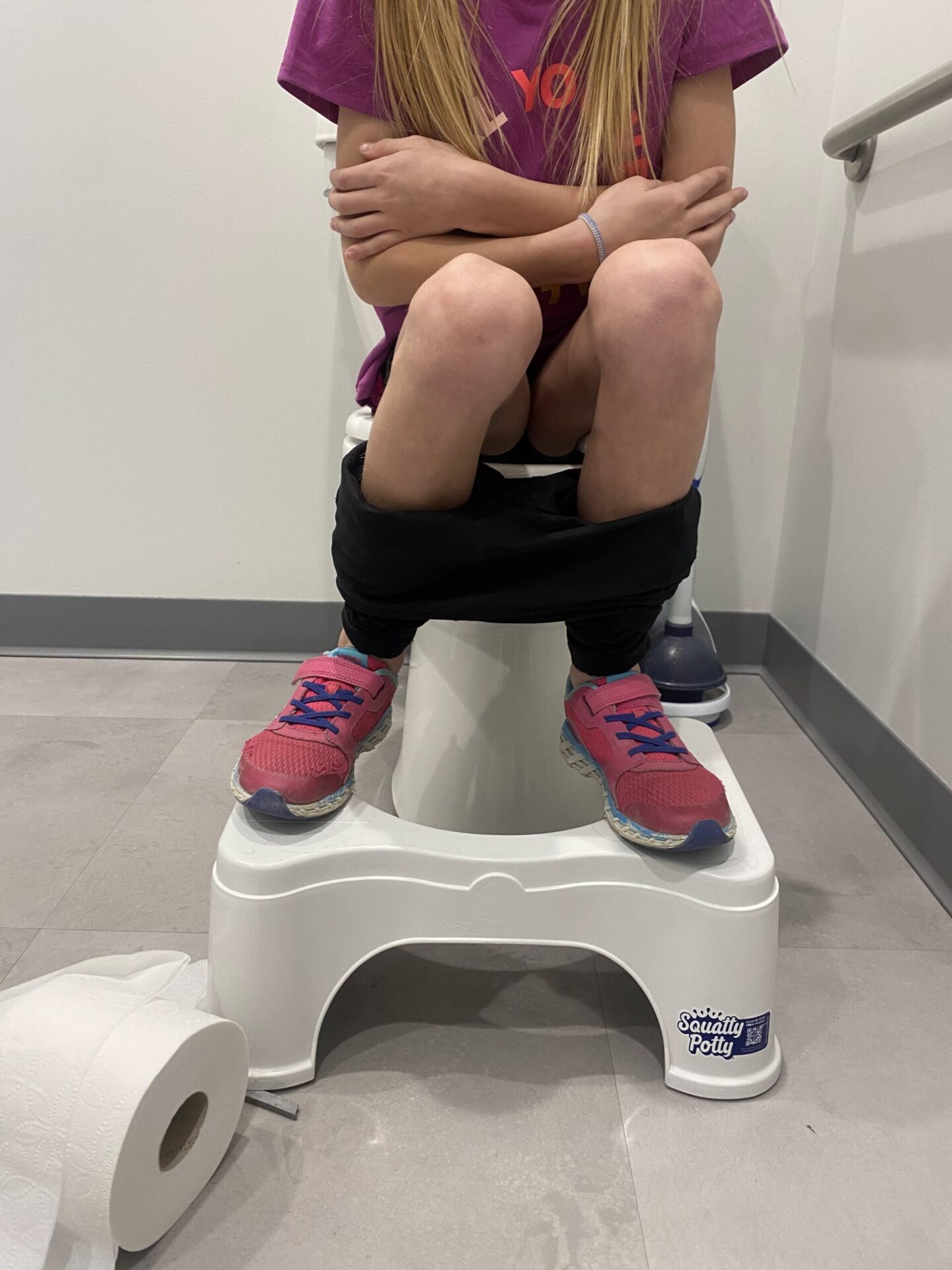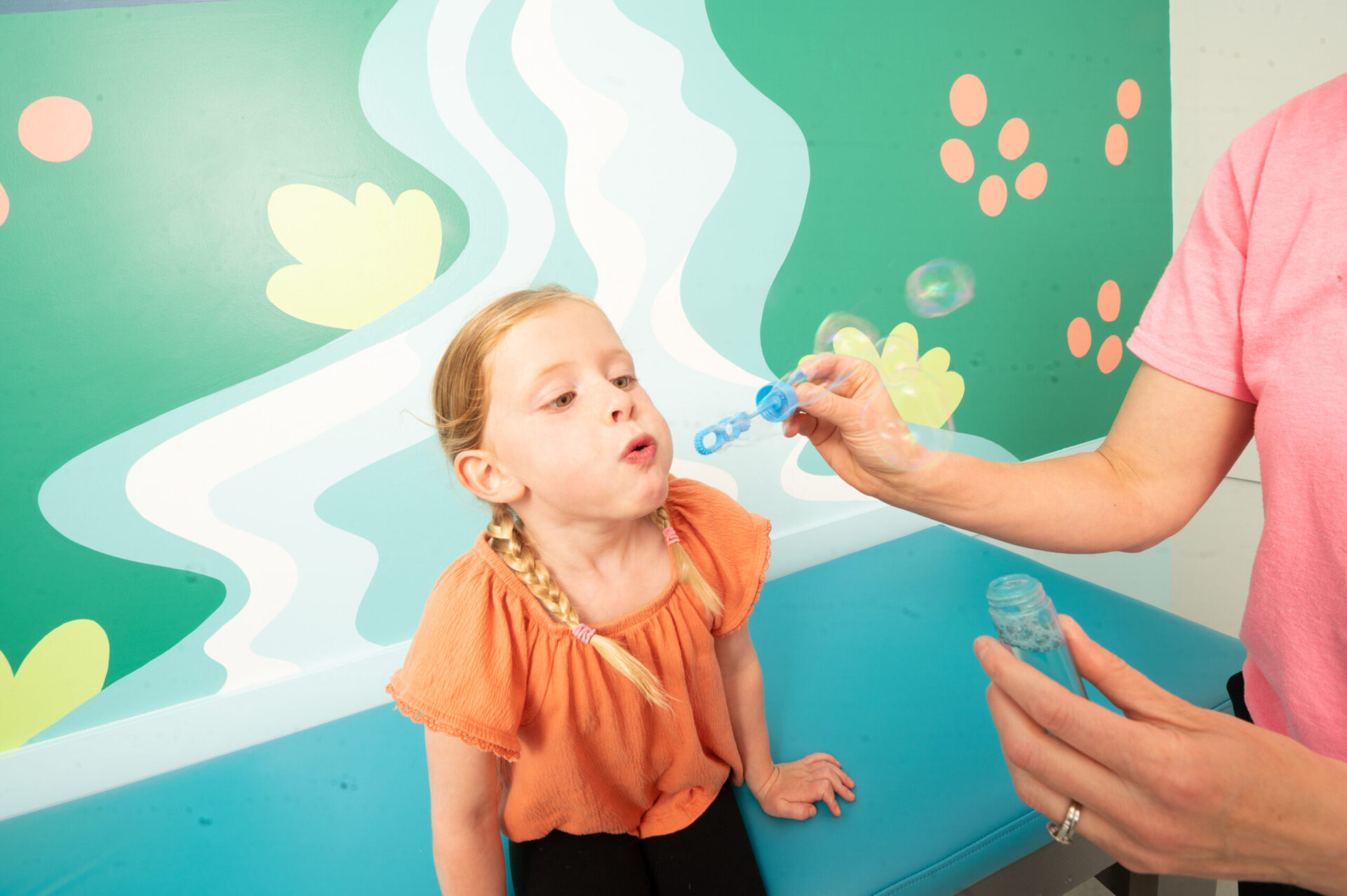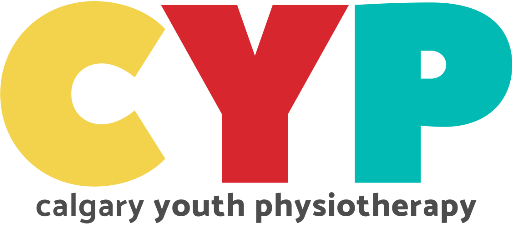Pelvic floor dysfunction is a common issue that can impact people of all ages, including kids. Pelvic health issues don’t happen in all children for the same reasons. Each child is unique, with unique circumstances. Our team digs deep into who your child is and what they require to overcome their pelvic health concerns. Thankfully, therapists skilled in pediatric pelvic floor therapy can help improve a child’s quality of life, using age-appropriate exercises, resources, and training, to help families navigate these obstacles.
Rest assured, like any other physiotherapy appointment at CYP, your child’s appointment will be very family-centred and FUN!
Pediatric Pelvic Health
Problems holding in urine or stool
Constipation
Belly pain related to constipation
Bedwetting after six years old
Continued bladder accidents in school-age children
Constipation
It’s no fun when a kid can’t poop. The struggle is real and shared by many families. Kids hold their stools for a variety of reasons, but one cause may be the result of pelvic floor muscle dysfunction.
The pelvic floor muscles are the gatekeepers; if they don’t open, then no stool will pass. To open the pelvic floor muscles, they need to relax and lengthen. Sometimes, the muscles tighten and close instead. This might be happening because of past pain or injury, or they may fear sitting on the toilet or think it’s gross–all reasons that make it hard to relax. So, even when they feel like they need to “go,” the muscles won’t let them; instead, they will strain to push it out.
Physiotherapy is a proven and effective way to address bowel dysfunction. Pelvic floor physical therapists teach various methods to help children poop in ways that are age-appropriate and help them understand what is happening in their bodies. This is important in helping a child understand how their body functions and providing them with the language they need to feel empowered and communicate their needs to others. A thorough physical exam will evaluate posture, breathing and joint mobility. An external pelvic floor muscle exam (upon consent) will determine your child’s ability to contract and relax the pelvic floor.

List of Treatments
Breathing and pelvic floor exercises
Games to teach what it feels like to both contract and relax the muscles
Diet adjustments
Toileting schedules
Posture exercises
Stretching
Bedwetting (over the age of six)
Bedwetting can have adverse effects on a child’s psyche. Children may experience poor self-esteem, guilt, frustration, anger, shame, and embarrassment. Due to bedwetting, children will often avoid sleepovers and camps. Bedwetting can also cause stress for families and caregivers with the added laundry and need for pull-ups or diapers.
Pediatric pelvic floor therapy takes a behavioral—and exercise-based treatment approach to bedwetting. Our therapists can help your child strengthen their pelvic floor muscles to gain bladder control and figure out why your child is experiencing this problem in the first place. Then, you and your child can regain control and get a good night’s sleep!

List of Treatments
Pelvic floor muscle evaluation
Bladder schedule
Advice on fluid intake and dietary adjustments
Education on bladder function
Exercise and games to build pelvic floor strength
Independent home exercise program

Questions about our clinic?
We have the answers.
Don’t have time to call right now? No worries. Email us. Let’s set up a convenient time for a complimentary 15-minute consultation. Or the answer you’re looking for might be on our Frequently Asked Questions page.

